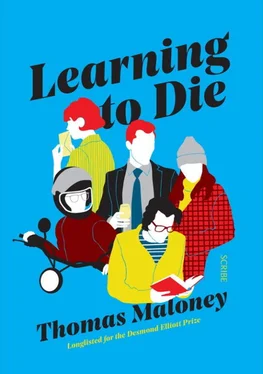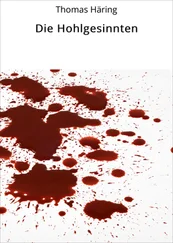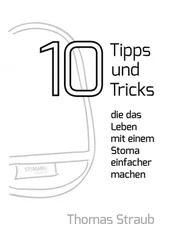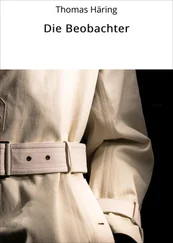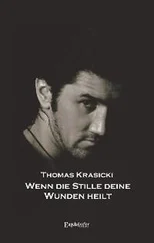Their marriage has brought Dan oscillating phases of satiety and gnawing hunger. During the sexual droughts his mind fixates on foolish, repetitive fantasies, destined to be swept away by the glorious saving fuck, which, when it finally arrives, offers richer, subtler pleasures that the demon had completely overlooked. For a few days or weeks of plenty, sex is not an obsession. Then the cycle begins again.
Like any quantum physicist, he thinks in distributions and not generalisations: there are outliers as well as averages. But he guesses most marriages are in more or less the same boat as the Mocks — the quantities of desire not merely dissimilar but plotted on different axes. Man’s anxiety about Woman’s sexual indifference is, after all, almost as entrenched in human culture as His paranoia about Her ungovernable lust. The poor woman can’t win, it seems.
‘Shall we get an early night?’ Dan suggests lightly, after dinner.
‘I promised Mum I’d give her a call.’
He presses his lips together and nods, stoically. These calls tend to be long. ‘Okay. Come up soon, though.’
How would Natalie tell her side of the sex story? After ten years together, Dan isn’t sure. Presumably, she feels mildly pestered (though on rare, unforeseen occasions she’s gone at him so hard he thought he’d suffer an injury). When he asks, she says defensively that yes, of course it’s important to her. That’s about it. The defining characteristic of sexual desire is its appalling selfishness: the dark heart of any marriage.
Mike Vickers commutes by car, cab, bus or tube as the whim takes him. On cool summer mornings he likes to walk to work through Hyde Park. He doesn’t do bicycles. Today, the Friday morning after the office Christmas party, he stumbles onto a bus. It stops in traffic near Edgware Road tube station, next to a roadside sculpture of a window cleaner holding a short ladder and looking up at a ten-storey building — symbolising resolve in adversity, Mike supposes, or work that’s never done, or following ambitious dreams. What’s his ten-storey building — his noble aim? He doesn’t have one. The bus moves on, passes a gap between buildings: a soft strike of sunlight on his eyes knocks down the lids — a touch of the divine. The world is full of blessings, and what is his response? To invent nothing, inspire nothing, contribute nothing. Whatever else James accused him of. It doesn’t need to be factually correct — it feels true enough.
He misses his stop, and as the bus trundles onward down baubled Oxford Street and Regent Street, he watches the grotesque theatre of shop workers preparing their windows for the day ahead — smoothing, straightening, dusting, tip-toeing reverently around plastic idols in their glass tanks. Nothing important, nothing good, nothing true.
Mike begins his descent from the top deck just as the driver accelerates into the Regent Street bend. He lets his body swing wildly into the gaping stairwell and imagines himself flying through trees on a liana. Then he stumbles out onto the chill grey pavement, and it’s over. All for one pound thirty.
The plastic women are far too skinny in the waist and legs, but have fabulous breasts.
Natalie Mock was thirty-one today. She and Dan hosted a little Christmassy party. They were expecting about ten guests, but only five showed. People have lots on at this time of year, and Reading is just a little too far from London — such a pain to get home. Rachel and Mark are dependable, but Mike was a no-show (payback for them missing his bash last month?), as was Dan’s flighty sister, Laura.
It was a nice evening, though. Natalie jostles unopened bottles of wine into a cupboard and consolidates unfinished plates of nibbles. She made a quiche that nobody touched. ‘Oh well,’ is how she verbalises a crushing, disproportionate pang of sadness. She carries back upstairs the first of two chairs that nobody sat on. This would normally be Dan’s job, but he went straight from the party to his last night shift. He’s been looking exhausted. Last weekend at the shopping centre he seemed to be limping but said it was nothing, and this evening he couldn’t pull the cork from a bottle of wine. Have to feed him up, go for some winter walks.
Annoying Lisa replied to the email. Ed — whoever he is — is taking her to the Canaries. Charlie’s an early talker. Six of her pupils had interviews at Oxbridge this week. Smug bitch. No, she hasn’t heard anything about Natalie’s ex for years:
He was trying to be a DJ or something — guess it never came to anything LOL. He was gorgeous though, wasn’t he. Intense. I used to be so jealous LOL. TTFN.
Gorgeous, intense — yes, he was. Natalie pours the dregs of a bottle of Cava into her glass and plants her bum against the table. Party music is still playing softly. His university was barely an hour’s bus or train ride from hers, and at first they met almost every weekend, comparing canteens, shower facilities, narrow beds — and work. Natalie worked hard: the studio was her passion and devoured huge tracts of time, late into the evenings, but she also had to keep up with modules on IT, construction principles, history and, worst of all, contract law. She needed support and encouragement from him, and was disappointed: he sneered when she wanted to attend lectures, skipped his own, and would sneak into the studio and distract her — it’s not easy to assemble tiny model components with UHU and tweezers while a guy is feeling you up.
His passion in those days was clubbing — he considered himself a techno music connoisseur, but he’d settle for anywhere with drinks, pills, dancing, a hedonistic vibe. He wanted Natalie to be there, but he would go without her and, when she had deadlines looming, often did. He was charismatic, of course, and attracted a ragtag of disciples. He had ideas. He passed his first year exams without effort. But he had a problem with authority, and with responsibility, and with commitment.
Back then. People change.
‘We did the nativity this week,’ says Hugo. ‘I was a wise man.’
‘Very apt.’
Again the fish and chips bench. James is earning another twenty pounds, which will help to cover his bus fare home for Christmas. The annual charade.
‘What’s does yapt mean?’
‘It means very suitable.’
Hugo has got ketchup on his scarf, and bows his big head to suck it off. James is surprised that he doesn’t topple forward. ‘I had to kneel down,’ adds the boy, sounding puzzled, ‘worship the baby Jesus and give him a bottle.’
‘I always think it’s worth remembering, even at Christmas, that when the baby Jesus grew up to be my age, they nailed him to a tree.’
‘No they didn’t — they nailed him to a cross.’
‘Oh yes, a cross. You’re right. He had to carry it himself. Shall I tell you something to make you even wiser?’
‘Yes.’
‘When Jesus had to carry his cross, that was a symbol. A kind of message. It means that we all have to carry difficult things.’
‘Like Trudy’s suitcase.’
‘No — things we have to carry in our heads.’
‘What things?’ James hesitates. Is the boy too young? No — he deserves the truth.
‘Cross number one: you are alone. Even if someone else is with you, you’re still alone inside — nothing can change that.’ Hugo frowns his huge, sorrowful frown, but he doesn’t argue. ‘Cross number two: you must die. You don’t know when, but you know it won’t be long. When someone says forever, they’re lying.’ The little man fishes out his last, soggy chip and stares at it with wide eyes. ‘That brings us to cross number three, the heaviest of them all.’ A look of dread creeps over the odd-shaped face, and James attempts a consoling smile.
‘What’s cross number three?’ A voice to break your heart. James scans the dirty grey horizon. A few ships, precise number immaterial.
Читать дальше
